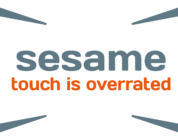Java is notably one of the most used programming languages and was ranked as one of the most popular languages in 2017. Java is used mostly to create server side applications to video games and mobile apps and is also the main foundation for developing apps on Androids.
Comparably to IOS, Android continues to dominate the global market which is owned by Google. It is also Linux based and partially an open source software.
While overall internet use continues to be exponential, recent data has stated that mobile internet usage is predicted to increase sevenfold from 2016-2021.
With the majority of users being added in lower developing countries where Android vastly dominates the market; Java is not going to lose it’s throne anytime soon.

Understanding the Importance of Application Servers
Application servers are a vital part of how information is utilized but it comes with many liabilities and vulnerabilities.
While web applications continue to substantially increase productivity in the workforce while also helping efficiency across many platforms, our increased relying on this tech and data makes us more susceptible to hackers and all types of malicious attacks.
Using server monitoring software is a vital component of any server support team to be proactive in threats while preventing any future problems with performance or downtime which can be detrimental to the bottom line.
Tomcat Application Server
Tomcat is an open source Java Servlet Container to include JavaServer Pages, Java Expression Language and Java WebSocket technologies created by the Apache Software Foundation under the Apache 2.0 license.
The Tomcat Application server is one of the most widely used application servers in the market. Most of today’s applications and web services can be built on Tomcat. Tomcat is also used as a web server when more complex setups have been applied.
One of the main collaborations and components of Tomcat is the Apache Tomcat Project. The projects consists of some of the best developers around the world and allows for contributors to either contribute to documentation patches, investigate bugs, or help with the upcoming release of Servlet and JSP specifications.
JBOSS/ Wildfly Application Server
Wildfly is an application server that was formerly known as JBOSS, and now being developed by RedHat. The JBOSS community is still available among other RedHat products that were not renamed.
While JBOSS EAP is open source, RedHat does charge for a subscription to provide support for some applications. The licensing has changed and now there is a core bundle licensing program.
The server is written in Java and based upon the Enterprise Edition of the Java Platform known as Java EE. JBOSS is another open source platform application server that thrives on it’s community of developers to contribute their own expertise but does provide a paid support option.
Differences Between JBOSS and Tomcat
It is important to know that the preference or debate of both of these Application servers is ongoing and heeds to many different opinions and specific scenarios.

Overall, it is probably well known that JBOSS is a servlets container and actually uses Tomcat internally as one of its containers. Additionally, one of the biggest differences is as described above, JBOSS allows for a paid subscription from Oracle based on the number of cores used with support or a community version.
This can be a big difference in your decision as Tomcat does not provide an option for support and relies mostly on it’s community with being mainly a servlet container and HTTP server.
Also, while TomCat is quite lightweight with integration and deployment ease, it is only a servlet container and does not allow for JAVA EE stack.
Mainly most people use Tomcat because of its ease of use and compatibility and integration to 3rd party technologies. However, if JAVA EE is a must then most likely JBOSS is a good choice for your company.




